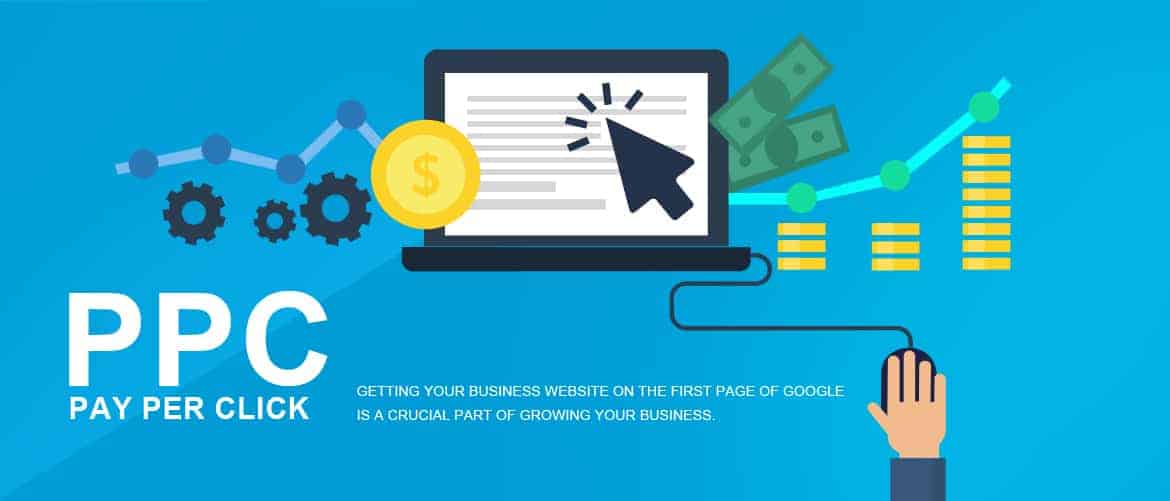If you’ve started dabbling in search engine optimisation for your small business website, you might have considered pay per click advertising.
Although there are some basic measures you can take to improve your website presence and where it features on search engine results (see our previous articles SEO and content marketing), it’s sometimes worth implementing a pay per click campaign.
PPC can be particularly useful when you’re trying to stand out in a competitive market, or you want to super-boost your SEO efforts. The problem with PPC is that it can seem quite daunting, complex and time consuming for those who are not familiar with it – but luckily, we are.
As an accredited Google Partner, we have passed Google’s rigorous assessments in Adwords, as well as being able to evidence where we have helped clients achieve measurable growth by successfully managing their PPC campaigns.
While you could call us in to do all the hard work for you, it is possible to manage your own PPC campaign, as long as you have the time and resources to invest.
With that in mind, we’ve put together a beginner’s guide to pay per click advertising to help get you started.
What is pay per click?
Just in case you’re completely new to the PPC scene, we’ll start from the very beginning. (FYI, we’re going to focus on Google Ads, but other forms of PPC are also available). You know when you see those sponsored ‘Ads’ at the very top of the page when you enter a search term in Google?. That’s a paid for ad. You can target your advert at particular search terms, to ensure you feature when someone enters that term. You only pay though if someone clicks on your ad, hence ‘pay per click’.
That advertising space is given to the highest quality adverts that are most relevant to the people searching, so the better your advert and click-through rate (the number of people who click through to your website landing page from the ad), the lower the costs will be.
The key to a successful ad campaign is taking the time to research, plan and clearly define what you’re going to do. It can be tempting to just blast it with everything hoping that some of it sticks, but this won’t ensure you get enough return on your investment. If the amount you invest in your Adwords campaign isn’t reflected in results, then it’s not worth doing.
Which brings us on to the first step of preparing for your campaign:
Setting goals for your PPC campaign
Unless you’ve clearly defined what you want to achieve, you’ll be blindly stabbing around in the dark. You need to determine your goals. Broader objectives could be to increase sales and revenue, or to get your business brand out there. Within these, you might have more specific targets, such as a percentage increase in the number of people clicking through to your website, X number of new leads generated for the sales team, increased actual sales, X number of downloads of your new e-book, more quotes requested and so on.
There are various website analytics tools you can use to monitor your progress against these goals to see if your campaign is having the desired effect.
Defining your target audience
To ensure your campaign is as effective as possible, you need to be as specific as possible about who you are targeting and what search terms they will be using – i.e what you want to rank for.
Put those words into a search engine and see who else is already advertising there. If there are lots of adverts, then you’re competing in a very busy market; if you don’t see any it might mean no-one is looking for that particular search term. There’s a whole lot more to say about keyword research, so we’ll look at that separately in a future article.
Think about who would ultimately click on your advert and potentially continue through the sales funnel. There’s no point aiming your advert at someone who can’t afford what you’re selling, or would have no need to buy it, for example.
PPC landing pages
Assuming you’ve got your advert right and people are motivated to click, the next stage is ensuring that the page they click through to relates directly to the advert. Don’t entice them with something and then send them to your homepage, leaving them to hunt for themselves; the chances are they won’t bother.
The best PPC campaigns have well designed landing pages that deliver straight away. So if you’ve offered a one-off discount, then make sure the landing page enables them to take the next step towards claiming it, if you’re promoting an e-book, make sure the landing page has the link to that book, and so on.
Measuring success
There are various ways you might measure success against your goals and it might not always come down to money. It could be, for example, that you’re looking to raise awareness for a charity or campaign, rather than generate sales directly. However, at some point you need to be able to measure whether the PPC investment is worth it. You might use the click-through rate, your conversion rate (the number of people who took the action you promoted) and your cost per conversion.
How much does PPC cost?
The cost per click varies depending on your target keywords, the potential click-through rate, the quality of your advert and landing page and how relevant your advert is to a particular search word. Although you can set your own budgets, there is a limit as to how far your advertising can go, so you’ll want to make sure your campaign is as effective as possible.
Please contact Expand Digital Media if you’d like more information on pay per click pricing, or if you’d like us to manage your pay per click campaign for you.


